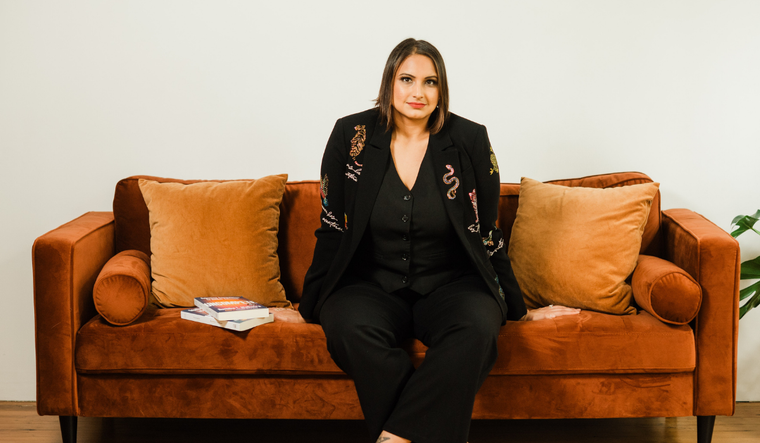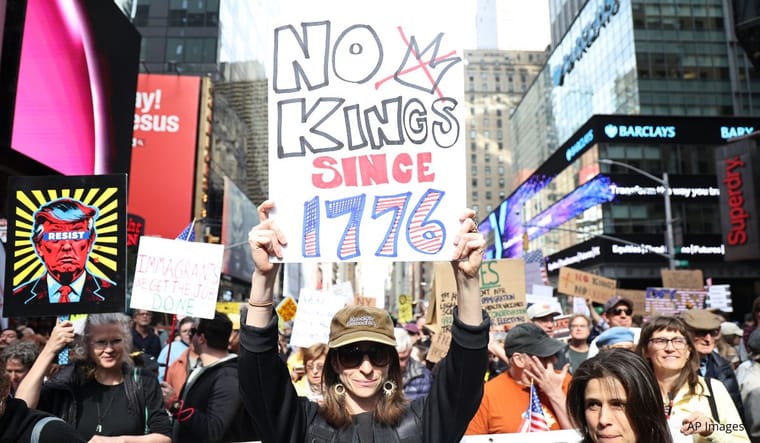Claire Babineaux-Fontenot, CEO of Feeding America, Talks About the Importance and Impact of Her Organization During the Last Few Years
Growing up in Louisiana, Claire Babineaux-Fontenot was exposed to the life-stretching power of giving back. Her parents ran a food pantry out of their home. They also raised 108 children over their 54 years together through either biology, fostering, or adoption. “They're the ones who instilled whatever passion I have for trying to do good in the world,” says Babineaux-Fontenot about her mother and father.
This through-line of helping others fed Babineaux-Fontenot’s career. As the CEO of Feeding America, a position she’s held since 2018, Babineaux-Fontenot is at the helm of the United States’ largest hunger-relief organization, which consists of more than 200 food banks and 60,000 food pantries across every state, as well as Puerto Rico. Before being at the helm of Feeding America, Babineaux-Fontenot held positions as a lawyer and on Walmart’s executive team.
These days she puts all her vigor—and insights from her upbringing—into her work. Facing the issue of hunger and food insecurity is a giant feat. Thirty-eight million people face hunger in the U.S., 12 million being children—a statistic that jumps to 22 million kids in the summertime given that school meals—nourishment that many children depend on—are halted.
It’s a harrowing and grave issue. But one that Babineaux-Fontenot believes can be fixed with tenacity and hope. “There are over 10 million people, really 20 million people, who are not food insecure, I believe, in large part because of the work that we've done together in this country. We were kicking down food security rates in the country before the pandemic. We know what works. We can, together, do what works. We have to stay in it until we're done.”
We chatted with Babineaux-Fontenot about how she nourishes her optimism in the face of such a tremendous issue, what we all need to know about food insecurity, and how we can help eradicate the issue—for good.
Claire Babineaux-Fontenot on…
Finding our commonality…
“I've been trying my best to visit as many communities as I can, well over a hundred food banks, during the pandemic. Every time there was a shrillness and this divineness that was grabbing the headlines, I was in a community where people were doing something antithetical to that. Every single time, I was in a community where people were volunteering to help their neighbors. It was so powerful for me to go into places that had this signage or visual cues that would tell me ‘you won't be welcome here.’ There was one place I went to that had the biggest flag pole I think I've ever seen in my life and the biggest Rebel flag I've ever seen. I pulled up in the parking lot of the food bank there and crossed over the threshold where I was embraced with both hands. We sat at our table, members of the community and members of the team and faculty, and we talked about what we have in common.”
On how she stays hopeful…
“We have volunteers there who cut across the spectrum and they're stepping up. They could be doing anything. They could be sitting at home. They could be sitting on a rocking chair on their porch because many of them have already paid their dues. Many of them are seniors, the majority of our volunteers. No one's telling them they have to be there. And yet they're showing up—and some of them show up to volunteer in the same way that you or I show up for a job. They show up every day to volunteer. That fuels my optimism about the goodness of people. And I believe that my optimism is rooted in reality.”
On her gratitude for her upbringing…
“To think about how my parents and the effect that they were having on many lives isn’t lost on me. That every day you get a chance to show care. My parents, and especially my mother, showed care. She had this extraordinary capacity to see what was possible for each of us and she vested in the possibilities within us, as individuals and as a group.”
On the gravity of food insecurity during the Pandemic and today…
“That was a moment of epiphany for many people, around hunger in America. People who didn't imagine that, seeing those cars lined up blocking traffic to get food [during the pandemic]. But my concern was that when those lines returned inside the building, people would think that the issues went away.”
“We’ve seen reductions in donations. We've seen reductions in the visibility of the issue. It has given way to other important issues, to be sure. But this is an important issue. We should stay focused on it because we can change it. There’s no good reason for 38 million people to be food insecure in this country. There are reasons why, but there are no good reasons. If we could decide that it's unacceptable, we could change it. We have the wherewithal as a country, but people don't work on problems they don't think they have. Right. Yeah. And a lot of people who I had hoped in the middle of an epiphany around the marathon that is the crisis around hunger in America, some of these people were signing up for a sprint.”
People have to realize it's still here.
On what we all can do to help…
“The donations to food banks have gone down precipitously. We need people who can donate to please donate. We need funds. We need people to realize this is, in fact, a marathon and not a sprint. We need people to double down and try to find whatever they can give. We honor any gift. We consider every gift an investment in a community. And I promise you, we serve the community that everyone cares about because we serve every county and every parish in the United States of America and Puerto Rico. Wherever you're from, wherever you went to school, wherever you met your partner, wherever you had your best experience or your most fun vacation, wherever that is there are people experiencing food insecurity there and our network is helping them. You can be a part of helping them too.”
To learn how to donate, go to feedingamerica.org.
Please note that we may receive affiliate commissions from the sales of linked products.



